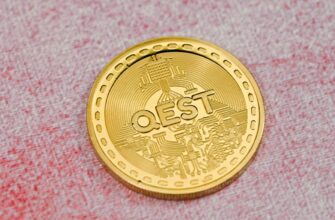Why Buy Cryptocurrency with a Credit Card?
Purchasing crypto with a credit card offers instant access to digital assets without lengthy bank transfers. This method is ideal for beginners seeking quick entry into markets during price dips. Credit card transactions typically process within minutes versus days for bank wires, letting you capitalize on timely opportunities. However, be aware of potential fees and security considerations we’ll explore later.
Step-by-Step Guide to Buying Crypto with a Credit Card
- Choose a Reputable Exchange: Select platforms like Coinbase, Binance, or eToro that accept credit cards and operate in your region.
- Create and Verify Your Account: Provide ID documents for KYC (Know Your Customer) verification, which usually takes under 24 hours.
- Add Your Credit Card: Navigate to payment methods and enter card details (number, expiry date, CVV). Some exchanges require 3D Secure authentication.
- Check Fees & Limits: Review transaction fees (typically 3%-5%) and daily purchase limits before proceeding.
- Select Your Cryptocurrency: Choose Bitcoin, Ethereum, or other supported coins. Consider starting with stablecoins like USDC for lower volatility.
- Confirm Purchase: Enter the fiat amount to spend. Preview the crypto amount you’ll receive, including fees.
- Transfer to Secure Wallet: Immediately move crypto from the exchange to a private wallet (e.g., Ledger, Trezor) for enhanced security.
Top 5 Platforms for Credit Card Crypto Purchases
- Coinbase: Best for beginners with intuitive interface (4% fee)
- Binance: Lowest fees (1.8%) and 500+ coin options
- eToro: Social trading features and copy trading tools
- Crypto.com: Visa card rewards program with cashback in crypto
- Kraken: Advanced security with 95% cold storage funds
Critical Safety Tips for Credit Card Crypto Buys
- Enable two-factor authentication (2FA) on all accounts
- Verify HTTPS encryption on payment pages
- Monitor for cash advance fees from your bank (up to 25% APR)
- Start with small test transactions before larger purchases
- Never share your private keys or seed phrases
Pros and Cons of Credit Card Crypto Purchases
Advantages:
- Instant transaction processing
- Credit card rewards points accumulation
- No need for pre-funded accounts
Disadvantages:
- Higher fees than bank transfers
- Potential cash advance charges
- Increased fraud risk compared to debit cards
Frequently Asked Questions (FAQ)
Q: Are crypto purchases with credit cards considered cash advances?
A: Many banks classify them as cash advances, incurring fees (3-5% of transaction) and higher interest. Check with your issuer first.
Q: Which cryptocurrencies can I buy with a credit card?
A: Major coins like Bitcoin (BTC), Ethereum (ETH), Litecoin (LTC), and popular stablecoins are widely available. Altcoin availability varies by exchange.
Q: How much can I buy with a credit card?
A: Limits range from $500-$20,000 daily depending on the exchange and your verification level. Higher tiers require additional ID verification.
Q: Can I withdraw crypto purchases immediately?
A: Most exchanges impose 3-7 day withdrawal holds on credit card purchases to prevent fraud. Bank transfers have shorter holds.
Q: What if my credit card transaction fails?
A: Common causes include bank restrictions, insufficient limits, or regional blocks. Contact both your bank and exchange support for resolution.
Q: Are there tax implications?
A: Yes, cryptocurrency purchases are taxable events in most countries. Maintain records of all transactions for capital gains reporting.








